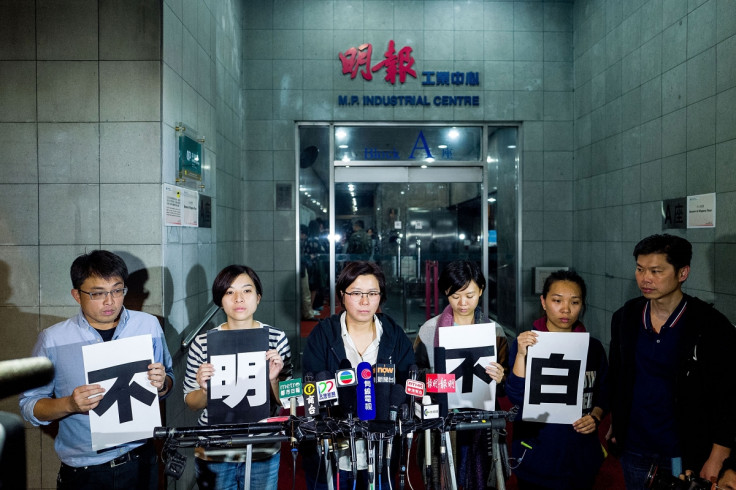Hong Kong press freedom under fire as top news editor sacked after Panama Papers report

A top editor at the Ming Pao newspaper in Hong Kong was sacked after the daily ran a front-page report on the Panama Papers. The story linked politicians and businessmen from the semi-autonomous region to the controversial accounting practices of Mossack Fonseca.
The sacking has infuriated the staff of the newspaper and journalists' unions alike. Employees of the Ming Pao newspaper rallied behind its now-sacked executive chief editor Keung Kwok-yuen, the No.2 editor in the newsroom, after he was fired. The news outlet's management said his removal was intended as a cost-cutting measure.
The Chinese-language paper, owned by Malaysian pro-Beijing businessman Tiong Hiew King, was among the dozens of newspapers around the world who jointly reported on millions of leaked documents from Panamanian law firm Mossack Fonseca. The disclosures shed light on how rich and powerful people across the globe hide their wealth, potentially to avoid paying taxes.
A staff union at the Ming Pao daily expressed "extreme dissatisfaction and anger" at Keung's sudden dismissal. The employees insisted the paper owes an explanation to its readers regarding the matter and protested outside the offices.
"The Association thinks that the incident was unclear, [we] question whether the company was using the reason of 'saving resources' on the surface, but actually punishing staff members who have different opinions on editorial issues," said the Ming Pao Staff Association. Keung has not yet reacted to the incident.
Journalist unions have also said the veteran editor's abrupt removal from the office signals it was politically motivated. A joint statement issued by eight journalist unions read: "If a journalist as moderate and professional as Mr Keung cannot be tolerated, what does it say about the press freedom of Hong Kong? We are deeply disturbed and worried."
Hong Kong, a former British colony, remains a thorny issue for China, which fears the territory is gradually slipping out of its control. In recent years, there has also been a growing dissent against Beijing's influence in Hong Kong affairs.
© Copyright IBTimes 2025. All rights reserved.






















